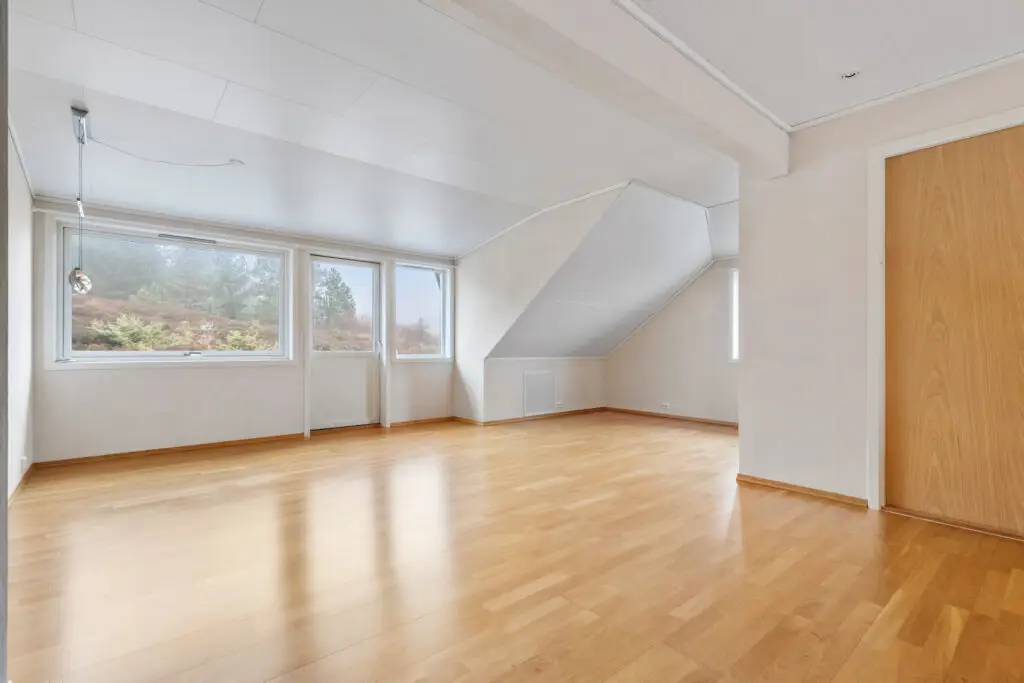
The Future of Real Estate Marketing 2025: Key Statistics and Strategies
Introduction
The real estate industry is undergoing a significant transformation in 2025. With evolving buyer behavior, digital advancements, and economic shifts influencing the market, real estate professionals must adapt their marketing strategies to stay competitive. From virtual tours and AI-driven analytics to sustainability-focused housing trends, leveraging data-backed insights is crucial for success.
This article explores key real estate marketing trends for 2025, supported by statistical evidence from reputable sources. Understanding these insights will help real estate professionals craft effective marketing strategies that drive engagement, boost conversions, and maximize property sales.
1. Home Buying Trends Reshaping Real Estate Marketing
Key Statistics
- Millennials and Gen Z account for 53% of all homebuyers, solidifying their dominance in the housing market (National Association of Realtors).
- 97% of homebuyers start their property search online, making digital marketing essential (Zillow).
- 88% of homebuyers purchase their homes through a real estate agent, reinforcing the importance of professional guidance in the process (National Association of Realtors).
- Listings with virtual tours receive 87% more views than those without (LLCBuddy).
- 56% of homebuyers say virtual tours significantly impact their purchasing decisions (PropertyBox).
- Mobile real estate searches have increased by 58% in the past three years, emphasizing the importance of mobile-optimized listings (Movable Ink).
- First-time homebuyers make up 34% of total purchases, with affordability remaining a significant challenge (National Association of Realtors).
Real Estate Marketing Strategy
With 97% of homebuyers beginning their search online, it is imperative that real estate professionals prioritize a digital-first marketing approach. This starts with search engine optimization (SEO) to ensure listings rank higher on search results and are easily discoverable by prospective buyers. Creating high-quality, mobile-optimized websites and landing pages is equally important, as mobile searches have surged by 58% in the past three years (Movable Ink).
Social media marketing is another key strategy, as platforms like Instagram, TikTok, and Facebook are where younger buyers actively engage with real estate content. High-quality images, video walkthroughs, and interactive content like Instagram Stories and Reels can drive engagement and increase property visibility.
Additionally, incorporating educational content such as blog posts, guides, and webinars on financing options, mortgage rates, and homebuying tips can help first-time buyers navigate the purchasing process. By addressing common pain points—such as affordability concerns and loan options—agents can build trust and attract motivated buyers.

2. Home Selling Trends and Their Impact on Real Estate Marketing
Key Statistics
- Homes with professional photography sell 32% faster and for an average of $11,000 more (FollowUp Boss).
- 61% of brokers believe high-quality listing photography is the most crucial factor in marketing a home (FollowUp Boss).
- Staged homes sell 73% faster and command 5-10% higher offers (National Association of Realtors).
- Real estate listings with video marketing receive 403% more inquiries compared to those without (PhotoUp).
- 80% of buyers say they are more likely to schedule a showing after watching a video tour (Movable Ink).
- Homes marketed with drone photography receive 68% more views and sell 20% faster than those without aerial imagery (MLS Statistics Report).
Real Estate Marketing Strategy
To maximize property exposure and attract more buyers, sellers must invest in high-quality listing visuals. With 61% of brokers stating that professional photography is the most important factor in selling a home, it is clear that listings with compelling visuals outperform those without (FollowUp Boss). High-resolution images, drone photography, and immersive 3D virtual tours can captivate potential buyers and drive more engagement.
Video marketing is another crucial strategy, as listings with videos generate 403% more inquiries (PhotoUp). Short-form content, such as Instagram Reels, YouTube Shorts, and TikTok videos, can highlight a property’s best features in a visually appealing and digestible format.
Virtual staging is also becoming an essential tool for real estate marketers. Since staged homes sell 73% faster and command 5-10% higher offers, leveraging AI-powered virtual staging solutions can enhance property appeal without requiring physical renovations (National Association of Realtors).
Sell More, Save More with Virtual Staging Services
Virtual staging is an innovative solution that complements Real Estate Marketing Strategy by transforming empty spaces into beautifully furnished homes.
- Cost-Effective Alternative – Virtual staging costs significantly less than traditional staging, saving sellers thousands of dollars.
- Faster Sales – Homes with virtual staging sell up to 75% faster than vacant homes (NAR, 2023).
- Increased Buyer Interest – 81% of buyers find it easier to visualize a property as their future home when it is staged (RESA, 2022).
- Flexibility and Customization – Virtual staging allows sellers to tailor furniture styles to different buyer demographics, increasing appeal.
By integrating virtual staging, sellers can enhance their listings, attract more buyers, and close deals faster—all while reducing costs.

Before: Empty Room

After: Virtual Staging by Digihomestudio.com
Suggestions for Virtual Staging Services
If you are looking for a professional virtual staging and render service at an affordable price, Digihomestudio.com is a worthy place for you to trust and accompany. You can expect to invest around $29 for a meticulously designed and lifelike final image, suitable for showcasing your home across various digital platforms.
We have a network of world-class virtual stage editors and designers in Vietnam. To ensure the best level of service, the customer service team is located in the US.
Our virtual home staging services include:
- Staging for empty or furnished rooms
- 2D and 3D floor plans
- Change the color of the walls and floors
- Virtual renovation
- Erase furniture and small objects
- And much more!
If you’re prepared to elevate your real estate marketing strategies, reach out to Digihomestudio.com now and experience the benefits of collaborating with one of the top virtual staging firms available today.

Virtual Staging by Digihomestudio.com
3. The Rise of Rental Market Demand in Real Estate Marketing
Key Statistics
- Rental prices have increased by 29.4% since pre-pandemic levels, making homeownership less attainable for many buyers (Resimpli).
- 74% of millennials prefer renting over buying due to financial constraints and lifestyle flexibility (Zillow).
- Luxury rental demand has surged by 17% in the past two years, driven by professionals and remote workers (National Multifamily Housing Council).
- Urban rental vacancy rates are at a five-year low of 4.2%, indicating strong rental demand (U.S. Census Bureau).
Real Estate Marketing Strategy
With rising home prices, the rental market continues to attract more individuals, particularly millennials and Gen Z. To capitalize on this demand, real estate professionals should enhance their rental marketing strategies by utilizing high-quality imagery, virtual tours, and targeted social media advertising. Listings should emphasize desirable amenities such as home offices, smart home features, and energy efficiency, as renters are increasingly prioritizing convenience and cost savings. Additionally, property managers and realtors should leverage automated lead nurturing and chatbots to improve response times and conversions.
4. Artificial Intelligence and Digital Tools in Real Estate Marketing
Key Statistics
- AI-powered chatbots handle 80% of real estate inquiries, improving engagement and lead conversion rates (All About AI).
- Predictive analytics increase lead conversion rates by 50%, helping real estate professionals target the right buyers (The Business Research Company).
- AI-generated property descriptions drive 25% more engagement than manually written listings (ArtSmart AI).
- Artificial intelligence in real estate marketing is expected to grow by 32% annually, revolutionizing the industry (Precedence Research).
Real Estate Marketing Strategy
AI and automation are transforming real estate marketing by improving efficiency and personalization. AI-powered chatbots can instantly respond to potential buyers and schedule appointments, reducing missed opportunities. Predictive analytics help agents identify serious buyers and tailor marketing efforts accordingly, increasing lead conversion rates. AI-generated property descriptions and targeted email campaigns further enhance engagement, providing personalized experiences for buyers and sellers.

5. The Shift Toward Sustainable Real Estate Marketing
Key Statistics
- 67% of homebuyers prioritize energy efficiency and green certifications when choosing a home (Zillow).
- Green-certified homes sell for 15% more on average, reflecting buyers’ willingness to pay for sustainability (Wall Street Journal).
- Properties with solar panels sell 20% faster than comparable homes without solar installations (National Renewable Energy Laboratory).
- 80% of millennials prefer sustainable homes, making eco-friendly features a key selling point (Precedence Research).
Real Estate Marketing Strategy
Sustainability is a growing priority in real estate marketing, with eco-conscious buyers driving demand for energy-efficient homes. Marketing campaigns should highlight green features such as solar panels, smart thermostats, energy-efficient appliances, and sustainable building materials. Real estate professionals should also partner with green home builders and emphasize potential cost savings in utilities to appeal to environmentally conscious buyers.

Conclusion
The real estate marketing landscape in 2025 will be driven by digital transformation, evolving buyer preferences, and economic shifts. Real estate professionals who leverage AI, optimize for digital engagement, and incorporate sustainability messaging will position themselves ahead of the competition.
By integrating data-backed strategies—such as high-quality visual marketing, AI-powered tools, and eco-friendly branding—real estate professionals can maximize visibility, generate more leads, and achieve greater success in the ever-evolving housing market.





Leave a Reply